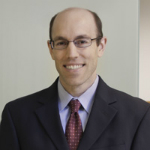Bellin's "eHearsay" Exception Considered by Federal Committee
With more and more people texting and using social media to record their observations, the court system is increasingly encountering a novel form of evidence. For example, courts have recently struggled with whether to admit a murder victim's text to her sister about threats made by the defendant, or a juror's text to a family member about an effort to buy her vote. How to handle this new form of electronic evidence was the topic of a recent symposium at University of Maine Law School sponsored by the Federal Advisory Committee on the Rules of Evidence. The Advisory Committee is the body of judges and practitioners appointed by the United States Supreme Court to draft and revise the widely influential Federal Rules of Evidence.
 Among the judges and scholars presenting at the symposium, the Committee invited Professor Jeffrey Bellin to present a proposal drawn from his most recent article, "eHearsay," 98 Minn. L. Rev. 7 (2013) SSRN. At the outset of the symposium, the Reporter for the Committee, Professor Dan Capra of Fordham Law School, referenced Bellin's electronic evidence scholarship as the genesis for the event. In "eHearsay," Bellin advocates the adoption of a new "eHearsay" rule that would permit litigants to show juries qualifying text messages and social media posts about relevant events. Bellin argues that many of these out-of-court communications constitute valuable evidence as they capture the observations of witnesses when their memories were freshest and prior to the distorting "shadow of litigation." In addition, text messages and social media posts, unlike oral hearsay, can be presented to juries precisely as they were originally "uttered."
Among the judges and scholars presenting at the symposium, the Committee invited Professor Jeffrey Bellin to present a proposal drawn from his most recent article, "eHearsay," 98 Minn. L. Rev. 7 (2013) SSRN. At the outset of the symposium, the Reporter for the Committee, Professor Dan Capra of Fordham Law School, referenced Bellin's electronic evidence scholarship as the genesis for the event. In "eHearsay," Bellin advocates the adoption of a new "eHearsay" rule that would permit litigants to show juries qualifying text messages and social media posts about relevant events. Bellin argues that many of these out-of-court communications constitute valuable evidence as they capture the observations of witnesses when their memories were freshest and prior to the distorting "shadow of litigation." In addition, text messages and social media posts, unlike oral hearsay, can be presented to juries precisely as they were originally "uttered."
Bellin presented his proposed rule of evidence at the symposium on April 4, 2014. One of the members of the Committee then presented a response to the proposal, explaining the types of evidence that would likely be admitted under the proposed rule. The presentations were transcribed and will be published in the Fordham Law Review. Bellin's proposal was placed on the agenda for further consideration at the Advisory Committee's next meeting at Duke Law School in October 2014. Whether or not his proposal is ultimately adopted, Bellin was pleased to be able to present it to the Committee. "For those of us who study Evidence," he explained, "there is no better opportunity than to present your ideas to the people who actually draft the Evidence rules. The chance to improve our legal system is a big part of why I entered academia, and I was thrilled that the Committee noticed my work and thought it important enough to devote so much time and energy to it at their symposium."


